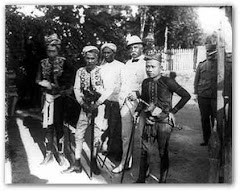In contrast to their earlier hyperbolic claims, government negotiators are now at least finally acknowledging that the Japan-Philippines Economic Partnership Agreement (JPEPA) will have adverse effects, hence the need for “safety nets”. But no amount of safety nets will be enough precisely because Japan ’s intention is to create conditions for the maximum exploitation of the Philippines ’ natural and human resources through the JPEPA.
The country’s experience with the World Trade Organization (WTO) since 1995 also clearly shows that so-called safety nets are only token mechanisms that have completely failed to stop the disastrous effects of free trade. Anti-JPEPA group No Deal! reiterates that the best safety net against the JPEPA is to reject it completely.
The WTO was questioned before the Supreme Court in 1994. Although the high court eventually found the WTO agreement constitutional, the subsequent trade liberalization has had disastrous effects on the Philippine economy, severely damaging local agriculture and forcing millions of Filipinos to go abroad to seek work. The past decade of poor economic performance actually gives the Supreme Court a reason to revisit its arguments in Tañada, et al. vs.
That the main beneficiaries of trade liberalization are
The negative effects of WTO-mandated trade liberalization on Third World countries has resulted in a breakdown in further trade talks since 2001 as underdeveloped countries are unable to accept the deeper liberalization being pushed by First World countries through the multilateral trade organization.
Thus, countries such as the
Government negotiators also appeared to have committed a grave abuse of discretion by entering into JPEPA motivated by a stubborn adherence to free trade dogma unsupported by sound scientific studies and economic reasoning. This is why they are having difficulty defending the JPEPA’s benefits before the Senate committee on foreign relations, forcing senators to continue scheduling hearings in a frantic attempt to find a pretext for sending the agreement before the body for ratification.
Indeed, government representatives have continuously played up the benefits to Japanese investors and domestic big business interests while glossing over the adverse effects on millions of Filipino fisherfolk, workers and farmers. This is a gross betrayal of government’s avowed duty to govern for the benefit of the majority.
The economy has only been weakened by free trade agreements such as under the WTO and like the proposed JPEPA. If the government is prepared to truly develop the domestic economy instead of surrender it to foreign traders and investors, then safety nets would not be needed. If it is not prepared, then no safety net will be good enough. (END)
CONVENORS: Former Vice President Teofisto Guingona Former Senator Wigberto Tañada Anakpawis Representative Crispin Beltran Rafael Mariano, Kilusang Magbubukid ng Pilipinas Nitz Gonzaga, Kilusang Mayo Uno Fernando Hicap, Pamalakaya Dr. Carol Pagaduan-Araullo, Bagong Alyansang Makabayan Jossel Ebesate, R.N., Alliance of Health Workers Connie Bragas-Regalado, Migrante Clemente Bautista Jr. Kalikasan People’s Network Rechielda Extremadura, Lila Filipina Arman Albarillo, Bayan-Southern Tagalog Roy Velez, Bayan-NCR Ed Cubelo, Toyoto workers union president Sonny Africa, Ibon Foundation Prof. Roland Simbulan, UP Arnold Padilla, spokesperson
No Deal! Movement Against Unequal Economic Agreements
Press Statement / November 23, 2007



















No comments:
Post a Comment